Living in a vibrant city like London offers many benefits, but it also means dealing with common allergens like dust, pollen, and pet dander. If you or your family members suffer from allergies, maintaining a clean and allergen-free home is crucial. Floor sanding can play a significant role in this process by rejuvenating your wooden floors and reducing allergens. Here’s how floor sanding can help create a healthier home environment.
- The Link Between Floor Sanding and Allergies
Dust and Allergen Buildup:
- Accumulation: Over time, wooden floors can accumulate dust, pet dander, pollen, and other allergens, especially in scratches, dents, and gaps between floorboards.
- Old Finishes: Worn-out finishes can trap allergens, making regular cleaning less effective.
Sanding Benefits:
- Surface Renewal: Sanding removes the top layer of wood, including the old finish, scratches, and dents where allergens can accumulate.
- Smooth Finish: A freshly sanded and sealed floor has a smooth surface that is easier to clean and less likely to harbor allergens.
- Choosing Hypoallergenic Finishes
Low-VOC Finishes:
- Water-Based Polyurethane: Opt for water-based polyurethane finishes, which have lower VOC (volatile organic compounds) levels than oil-based finishes. Lower VOCs mean fewer harmful fumes, reducing the risk of triggering allergies.
- Natural Oils: Consider natural oil finishes that are free from synthetic chemicals and additives, making them a safer choice for allergy sufferers.
Allergen-Resistant Coatings:
- Dust Repellent: Some modern finishes are designed to repel dust and allergens, helping to keep your floors cleaner for longer.
- Antimicrobial Additives: Certain finishes contain antimicrobial additives that prevent the growth of mold and bacteria, further reducing allergens.
- Professional Sanding: Ensuring a Safe Process

Dust Containment:
- Advanced Equipment: Professional sanding services use advanced dust containment systems to minimize the spread of dust during the sanding process.
- HEPA Filters: High-efficiency particulate air (HEPA) filters are used to capture fine dust particles, ensuring a cleaner work environment.
Safety Precautions:
- Protective Gear: Professionals wear protective gear to prevent inhalation of dust and fumes. Ensure they follow safety protocols to keep your home environment safe.
- Ventilation: Proper ventilation during and after the sanding process helps to quickly dissipate any remaining dust and fumes.
- DIY Sanding Tips for Allergy Sufferers
Preparation:
- Clear the Area: Remove all furniture, rugs, and curtains to prevent dust accumulation and ensure a clear working space.
- Seal Off Rooms: Use plastic sheeting to seal off the room being sanded from the rest of the house to contain dust.
During Sanding:
- Dust Masks and Goggles: Wear a dust mask and goggles to protect yourself from inhaling dust particles.
- Vacuum Regularly: Use a vacuum with a HEPA filter to regularly clean up dust during the sanding process.
After Sanding:
- Thorough Cleaning: After sanding, vacuum the entire area thoroughly and wipe down surfaces with a damp cloth to remove any remaining dust.
- Air Purifiers: Consider using air purifiers with HEPA filters to further reduce airborne particles and improve indoor air quality.
- Maintaining Allergy-Free Floors
Regular Cleaning:
- Daily Maintenance: Sweep or vacuum daily to remove dust and allergens. Use a vacuum with a HEPA filter for the best results.
- Damp Mopping: Use a damp mop with a hypoallergenic cleaner to clean your floors weekly, ensuring they remain free from allergens.
Protective Measures:
- Doormats: Place doormats at entrances to reduce the amount of dirt and allergens brought into the house.
- Rugs and Carpets: Limit the use of rugs and carpets, which can trap allergens. Choose washable options and clean them regularly.
Seasonal Maintenance:
- Spring Cleaning: Perform a thorough cleaning each spring to remove any accumulated allergens from the winter months.
- Humidity Control: Maintain proper indoor humidity levels (30-50%) using dehumidifiers or air conditioners to prevent mold growth and dust mite proliferation.
Conclusion
Floor sanding can significantly improve the air quality in your London home, making it a healthier environment for allergy sufferers. By removing old finishes and allergens trapped in the wood, and applying hypoallergenic finishes, you can reduce allergen buildup and enhance the overall cleanliness of your floors.
Whether you choose to hire professionals or tackle the project yourself, following the tips outlined above will help ensure a safe and effective sanding process. Regular maintenance and proper cleaning will keep your floors allergen-free, contributing to a healthier and more comfortable living space. Embrace these strategies to create an allergy-friendly home that benefits your entire family.


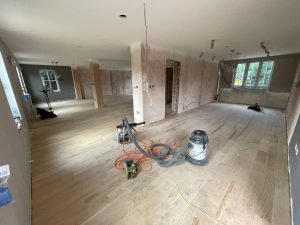
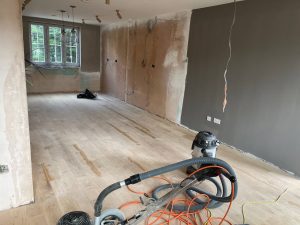
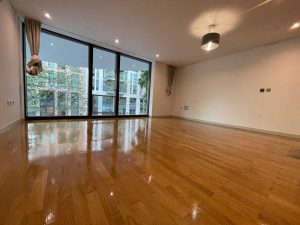
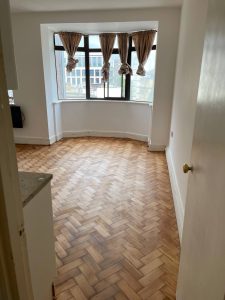
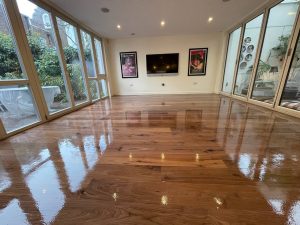
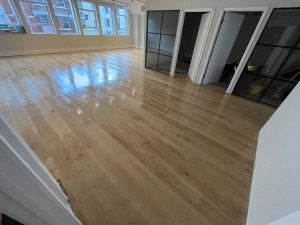
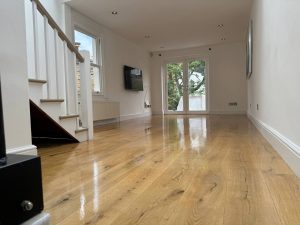
The Role of Floor Sanding in Allergy Prevention
The Role of Floor Sanding in Allergy Prevention Maintain a healthier home environment in[Read more...]
The Impact of Floor Sanding on Home Insulation
The Impact of Floor Sanding on Home Insulation Floor sanding is a[Read more...]
The Ultimate Checklist for Floor Sanding Preparation
The Ultimate Checklist for Floor Sanding Preparation Ensure a Smooth and Efficient Floor Sanding[Read more...]
The Lifespan of Sanded Floors: What to Expect
Sanded floors can significantly enhance the beauty and value of your home, especially in a[Read more...]
Gallery 04 – Engineering wooden floor
[Read more...]
Sep
Gallery 07 – Pine floor board
[Read more...]
Top 10 Benefits of Professional Floor Sanding
If you’re a homeowner in London, you know how important it is to maintain the[Read more...]
Carpet removal
[Read more...]
Floor sanding and renovation and installation services in Richmond
Richmond: A Jewel of London’s Green Boroughs Richmond is one of London’s most desirable and[Read more...]
How to Extend the Life of Your Sanded Floors
Sanded floors can dramatically enhance the aesthetic appeal and value of your home. To ensure[Read more...]